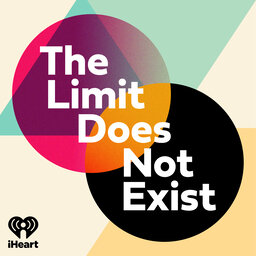TLDNE Mixtape: What Do I Do Now?
Since a lot of us are going through transitions right now, we’ve rounded up some of the best TLDNE advice for fresh starts, restarts, changes in direction, or entirely different roadmaps. Tune in to hear Stephanie Pereira, Tyler Thrasher, Dr. Sabriya Stukes, and Jen Gotch share mindsets, strategies, and perspectives that will help you take your next step.
Learn more about your ad-choices at https://www.iheartpodcastnetwork.com
 The Limit Does Not Exist
The Limit Does Not Exist


